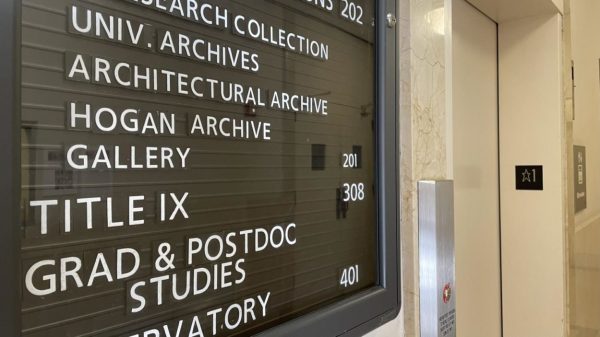
On Aug. 16, the Supreme Court temporarily blocked an addition to Title IX, including federal protections for LGBTQ+ students and faculty. The ruling affects several states, including Louisiana.
Title IX is a federal civil rights law that prohibits discrimination “on the basis of sex” in education institutions that receive federal funding, including private institutions like Tulane University.
The Supreme Court decision affirmed federal judge Terry Doughty’s halt on the Department of Education’s “Final Rule” in June. Doughty’s decision blocked the Final Rule in Louisiana, Mississippi, Montana and Idaho.
The Biden administration’s “Final Rule” expands Title IX’s definition of sex discrimination to “sex stereotypes, sex characteristics, pregnancy or related conditions, sexual orientation, and gender identity.” The rule also expands schools’ jurisdictions off-campus and strengthens reporting guidelines and support pathways.
The Supreme Court’s emergency order stated that all members believe the plaintiffs had legitimate legal claims, “including the central provision that newly defines sex discrimination to include discrimination on the basis of sexual orientation and gender identity.”
On July 31, Tulane’s Chief Title IX Officer Marcus Foster sent an email to the Tulane community regarding Doughty’s decision. Foster cited resources for students affected by the decision such as the Code of Student Conduct and Equal Opportunity/Anti-Discrimination Policies.
“The University is an equal opportunity educator and remains committed to combating and addressing all forms of gender-based discrimination, particularly discrimination on the basis of gender expression, gender identity, and sexual orientation,” he said.
Donald Trump said he would roll back Biden’s protections for transgender students on “day one” if elected back in the White House.
Doughty was appointed by Trump in 2018.
Justices Elena Kagan, Sonia Sotomayor, Ketanji Brown Jackson and Neil Gorsuch dissented to the Supreme Court ruling.
“By blocking the Government from enforcing scores of regulations that respondents never challenged and that bear no apparent relationship to respondents’ alleged injuries, the lower courts went beyond their authority to remedy the discrete harms alleged here,” Sotomayor wrote in her dissent.
Doughty’s decision stated that Title IX “was created to apply to two sexes” and that the Final Rule violates the First Amendment.
Trump’s campaign website states that he “will cut federal funding for any school pushing Critical Race Theory, transgender insanity, and other inappropriate racial, sexual, or political content on our children.”
Biden’s “Final Rule” is the administration’s attempt to reverse the changes to Title IX committed by the Trump administration. Trump’s Department of Education released 2,033 pages of regulations on Title IX in 2020.
Tulane’s Title IX office created a chart in 2020 to highlight the differences between university policy on sexual harassment and federal policy under the former Trump administration.
These rules included holding live hearings where accusers of sexual harassment and assault had to go through a cross-examination with the alleged perpetrator. The rules also limited schools’ jurisdictions, making it difficult for Title IX offices to deal with complaints off-campus or on study abroad programs.
Trump’s 2016 campaign platform stated that the Obama administration’s Title IX rules violated “our country’s legal traditions” and “micromanage[d] the way colleges and universities deal with allegations of abuse.”
“Justice Sotomayor emphasized in her dissent that ‘every Member of the Court agrees’ that Louisiana is entitled to an injunction against the rule’s redefinition of sex discrimination to include gender identity,” Louisiana Attorney General Liz Murrill said in a statement responding to the Supreme Court ruling. “This means that Louisiana schools will not have to comply with the Biden-Harris administration’s demand that they let boys in girls’ bathrooms as our children return to school.”
The Final Rule does not require schools to open their bathrooms to students based on gender identity; it prohibits discrimination against transgender students.
The Final Rule remains blocked in 26 states.



